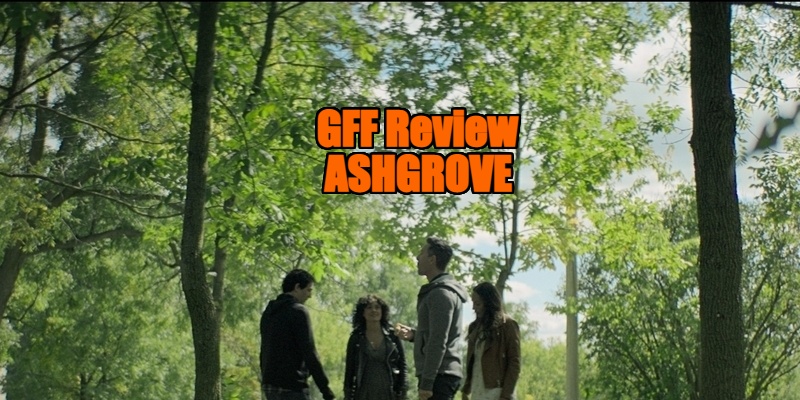
Review by
Eric Hillis
Directed by: Jeremy LaLonde
Starring: Amanda Brugel, Jonas Chernick, Natalie Brown
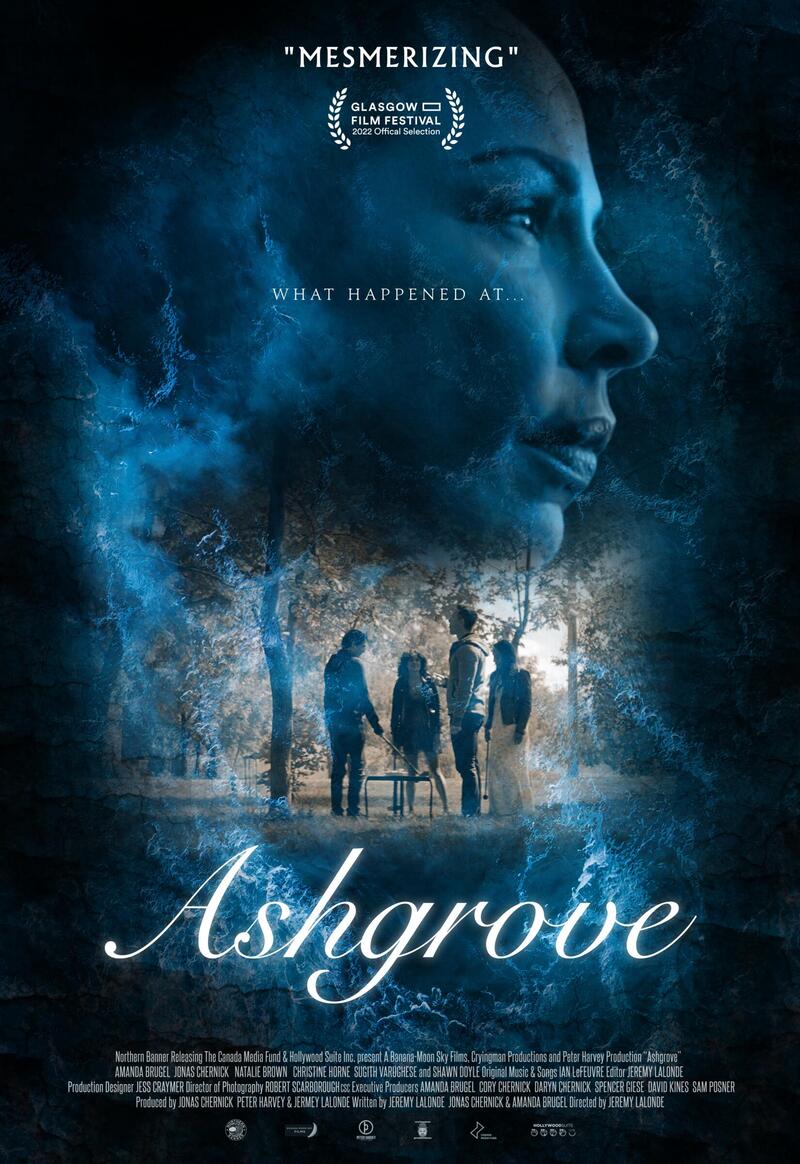
When the COVID pandemic hit it didn't take long for exploitative
filmmakers to seize an opportunity to cash in on our global misfortune.
An array of cheap horror movies were rushed out, most of which had
barebones plots quickly cobbled together in an attempt to seize upon a
moment (had they known how long the pandemic would actually last they
might have taken more time to develop their ideas).
Ashgrove is the first piece of "pandemic cinema" that
feels like it wasn't conceived as a cynical cash-in. Rather it feels
like its creators had an idea rattling around their heads and finally
found the opportunity to bring it to fruition amid our current
crisis.
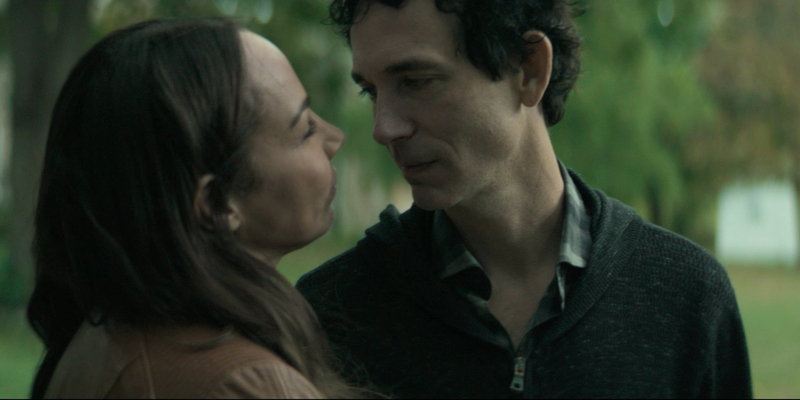
Directed by Jeremy LaLonde, Ashgrove is set amid a
different kind of pandemic, one with much scarier implications than
COVID. The world's water supply has become toxic, meaning only a certain
amount of water can be consumed on a daily basis. At the point the movie
begins, 60 million are dead globally, with another 100,000 dying every
day. The human race is expected to be extinct in five years. All hope
seems lost.
That is until Jennifer (Amanda Brugel), one of the scientists
tasked with finding a cure, has an epiphany one morning and believes
she's cracked it. Rushing into her car, she excitedly calls her office
to let them know she's figured out how to save the planet. But then she
wakes up in bed. Turns out she was found on the side of the road, having
suffered one of several blackouts she has been experiencing since having
a miscarriage the previous year. Jennifer is suffering from a mild
amnesia, meaning she has no recollection of having come up with a cure
for the global crisis.
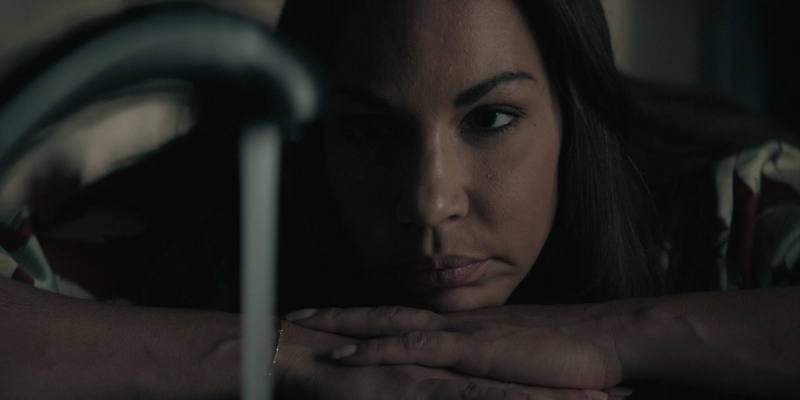
Despite Amanda's protestations, her superiors force her to take the
weekend off and relax in the farmhouse her husband Jason (Jonas Chernick) has spent the past year restoring (as with COVID, this pandemic has
left many of those not working on the frontline with a lot of time on
their hands). There's clearly some friction between Jennifer and Jason
however, but they agree not to argue over the weekend, as clearly there
are bigger things at stake than their relationship. Jennifer finds
herself prodded by Jason however, who is oddly insistent that she eat
certain types of foods and join him in specific activities. When she
overhears him quietly talking to someone on his phone, she becomes
paranoid that he's conspiring against her in some way.
It's difficult to discuss much of what makes
Ashgrove work as everything falls into place when a
certain twist is deployed. As the film had yet to receive its world
premiere, practically no details of its plot were available to me on the
internet, so for this writer it was a very rare case of sitting down to
watch a movie in complete ignorance of where its narrative might take
me. I'd suggest watching Ashgrove with a similar lack of
information, as this will help put you in the same headspace as its
protagonist Jennifer, and you'll be trying to figure out just what Jason
is up to along with her.
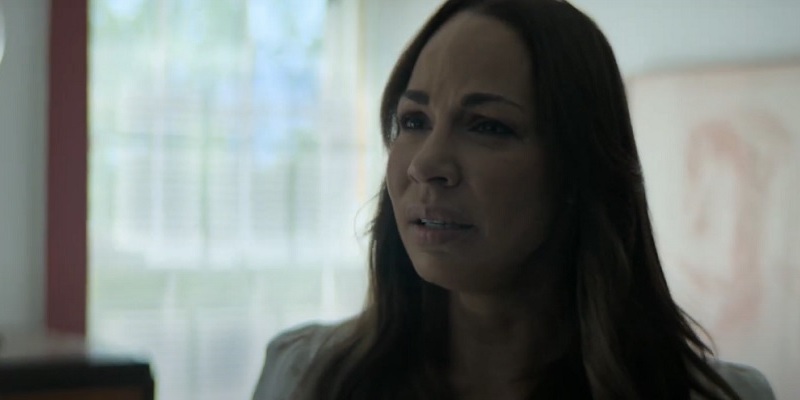
Ashgrove paradoxically feels improvised but also very
thought out. I won’t get into spoilers, but this actually plays into the
narrative that's being spun behind the scenes here.
Ashgrove is a film about replicating the past, of being
forced to repeat mistakes when it seemed you had a chance to move past
them. It's about the necessity of confrontation, of how we can't just
brush our problems under the carpet, which Jennifer and Jason have
clearly been doing for some time at the point we meet them. Jason
appears to be purposely attempting to engage in confrontation with
Jennifer, who insists she wants to avoid any such arguments. Is Jason a
hero or antagonist for behaving in such a way? Sometimes when we bury
our head in the sand, those who try to pull us up for air can seem like
our enemy when they're simply looking out for us.
Ashgrove makes the very mature suggestion that being a
good partner in a relationship sometimes requires you to play the role
of your other half's antagonist.


